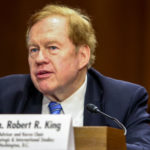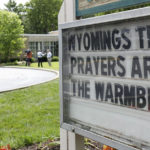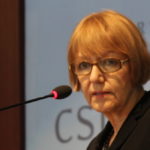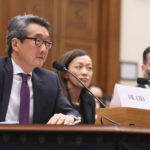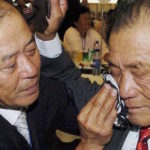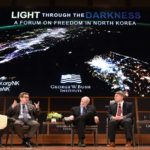October 18, 2017, by Marie DuMond—
Domestic stabilization is the most critical issue with unification for South Korean officials and experts, registering the highest composite score (i.e., high level of concern and low level of knowledge). This means civil-military relations, law and order, and stability in the North represent the issues for which Koreans see great consequences for national interests, but for which they have little prior knowledge or understanding. Hence, it is the greatest potential “blind spot” of unification. Costs related to unification rank a close second for South Koreans, followed by refugees, nuclear weapons, and human rights.
July 12, 2017, by Robert King—
One of the most important recent steps forward was the creation of the United Nations Commission of Inquiry on DPRK human rights violations and its ground-breaking report which was issued in 2014. That report concluded that the DPRK regime systematically violated the human rights of its own people—including freedom of thought, expression and religion; freedom from discrimination; freedom of movement and residence; and the right to food.
June 26, 2017, by Robert King—
The tragic death of Otto Warmbier has again raised the question of whether travel to North Korea ought to be prohibited by the United States government. Prohibiting travel by Americans to North Korea has been talked about for some time, primarily on Capitol Hill. Arguments for a travel ban are (1) to protect the safety and wellbeing of American citizens; and (2) travel is a source of hard currency for the Kim regime which goes to the “royal economy” for imported French cognac and luxury automobiles for the young leader, as well as to fund nuclear weapons and ballistic missiles.
February 15, 2017—
In this oral history, Ms. Sonja Biserko discusses her experience in gathering evidence and writing the legacy of the commission activities; and her perspective on the future of human rights in North Korea... The Commission of Inquiry (COI) on Human Rights in the Democratic People’s Republic of Korea…
February 13, 2017, by Jieun Baek—
President Trump’s North Korea policy must include considerations about empowering the North Korean people... The outgoing Obama administration advised Donald Trump to consider North Korea’s growing nuclear threat as his number one foreign policy priority. Despite Trump’s campaign talking points about downgrading the U.S.-ROK alliance, withdrawing U.S. troops…
February 8, 2017, by Victor Cha—
A Testimony by Victor Cha before the U.S. House of Representatives Foreign Affairs Committee on February 7, 2017... A Testimony by Dr. Victor Cha before the U.S. House of Representatives Foreign Affairs Committee on February 7, 2017. Chairman Royce, Ranking Member Representative Engel and distinguished Members of the Committee, it is a distinct…
January 19, 2017, by DailyNK Editorial Team—
North Koreans are gaining greater access to uncensored information... North Koreans are gaining greater access to uncensored information about regional conditions and world events thanks to new forms of media and technology flooding into the country from abroad. Former North Korean ambassador Thae…
January 12, 2017, by Marie DuMond—
Information control is one of a significant list of the terrible human rights abuses by the North Korean regime, as it seeks to control the mind, expression, and thoughts of the citizens as a tool of repression... 91.6 percent of North Korean respondents consume foreign media at least once each month. 83…
January 10, 2017—
The division of the Korean peninsula continues to incur definitive political, social, and economic costs. The human costs of division, however, are often forgotten. .. The division of the Korean peninsula continues to incur definitive political, social, and economic costs.…
December 9, 2016—
A new report titled “Toward a New Policy and Strategy for North Korea co-authored by Dr. Victor Cha and Ambassador Robert Gallucci was published this month. The report seeks to bridge the gap between the national security and human rights communities and argues for a new U.S. policy that integrates efforts toward dealing with North Korean security threats with approaches that focus on human freedom in the country.


